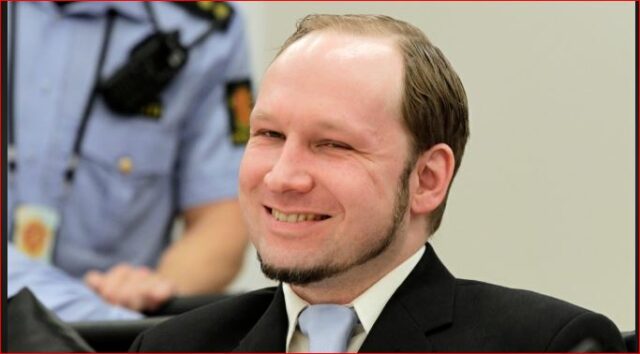A Norwegian court on Thursday rejected a plea by Anders Behring Breivik , the neo-Nazi who killed 77 people in Norway in 2011, to end his years of isolation in prison. Breivik had sued the government alleging that such isolation was “inhumane” and violated his human rights.
On 22 July 2011, Breivik had killed eight people with a car bomb and shot dead another 69, most of them teenagers, at a summer youth camp on the island of Utoeya. The attack was Norway’s worst peacetime atrocity, and he was sentenced to 21 years in solitary confinement.
The judges at the Oslo District Court also denied requests to lift restrictions Breivik’s communications with the outside world, saying it was justified because he remained a threat to society.
Breivik’s lawyers claimed he had been living in a “completely locked world” and did “not wish to be alive any more”. But the judges felt that he enjoyed “relatively great freedom” in a dedicated section of Ringerike prison, where he has access to a kitchen, toilet, as well as training and television rooms. “He studies and works on his political projects,” the verdict said.
In 2022, a court had rejected Breivik’s plea for parole, ruling that he had not changed and remained a risk to society.
In a career spanning three decades and counting, Ramananda (Ram to his friends) has been the foreign editor of The Telegraph, Outlook Magazine and the New Indian Express. He helped set up rediff.com’s editorial operations in San Jose and New York, helmed sify.com, and was the founder editor of India.com.
His work has featured in national and international publications like the Al Jazeera Centre for Studies, Global Times and Ashahi Shimbun. But his one constant over all these years, he says, has been the attempt to understand rising India’s place in the world.
He can rustle up a mean salad, his oil-less pepper chicken is to die for, and all it takes is some beer and rhythm and blues to rock his soul.
Talk to him about foreign and strategic affairs, media, South Asia, China, and of course India.





